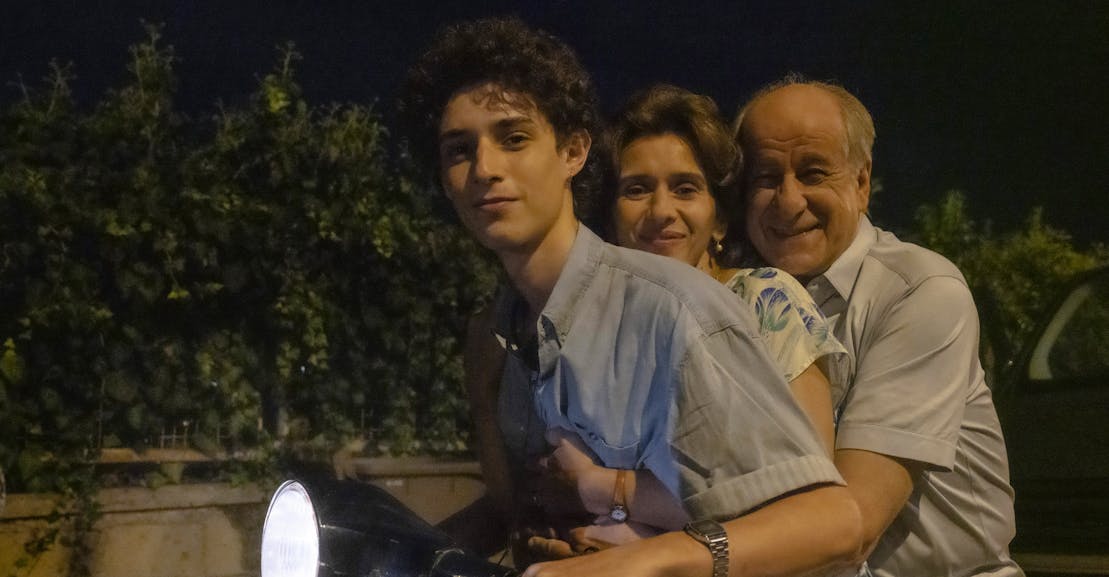
It comes in the form of an accident, and more than one family member will pass away. Fabietto narrowly avoids the accident, because he is elsewhere—watching Maradona play football. After the cataclysm, Fabietto’s elderly uncle—who latched onto Maradona with spiritual ardency and says early in the film that he will kill himself if Napoli doesn’t buy the player—is sure that Fabietto was saved. For him, Maradona is the icon of downtrodden peoples everywhere: a Communist hero whose every move has a deeper meaning, including this one. The accident’s relationship to Maradona makes it no accident, he believes, and he insists Fabietto’s survival is divinely ordained—a theology of Maradona, if you will.
Since the opening scene fixed our understanding of this world so firmly in Fabietto’s eyes, it makes sense that a numbness envelops the center of the film. It’s only at its end that the faux-joviality is dissipated, as well as the shock of loss, and the teenager is loosened up enough to strike up a conversation with a local film director, played by Sorrentino’s real-life mentor, Antonio Capuano, and the possibility of turning a numbed life into something meaningful through art opens up.
As befits an event with such a lovely name, there is a rich cultural seam of Hand of God art. You can play as Maradona in FIFA ’18 now, but he has been a character in video games since 1986, when England’s goalkeeper, Peter Shilton, licensed his name to a Commodore 64 game, “Peter Shilton’s Handball Maradona.” He was a character in the madcap Argentine comic Cazadore, which ran from 1992 to 2010. There have also been several documentaries about Maradona, most notably Asif Kapadia’s 2019 Diego Maradona. Like Kapadia’s hit films about Amy Winehouse and racing driver Ayrton Senna, the documentary is fulsome and blessed by a lot of original footage of Maradona warming up—a sight a bit like watching Michelangelo doodle in pencil.
Maradona himself seldom appears in The Hand of God: He is an object of adulation but also a ghost, or a spirit. Maradona does not have to be playing football to be present in Naples. He existed at a political level, too. There’s a current of subversion running through the story of Maradona, which Asif Kapadia emphasized in his documentary. He framed the Hand of God episode as “symbolic revenge” against the British for the Falklands war of four years earlier and their invasion of Buenos Aires in the early nineteenth century. In this view, which chimes with Fabietto’s uncle’s compulsive overinterpretation of football’s meaning for the fate of the universe, Maradona cheated in the same way that the English have always cheated everybody: subtly, without appearing to break the rules but, in the end, completely.
